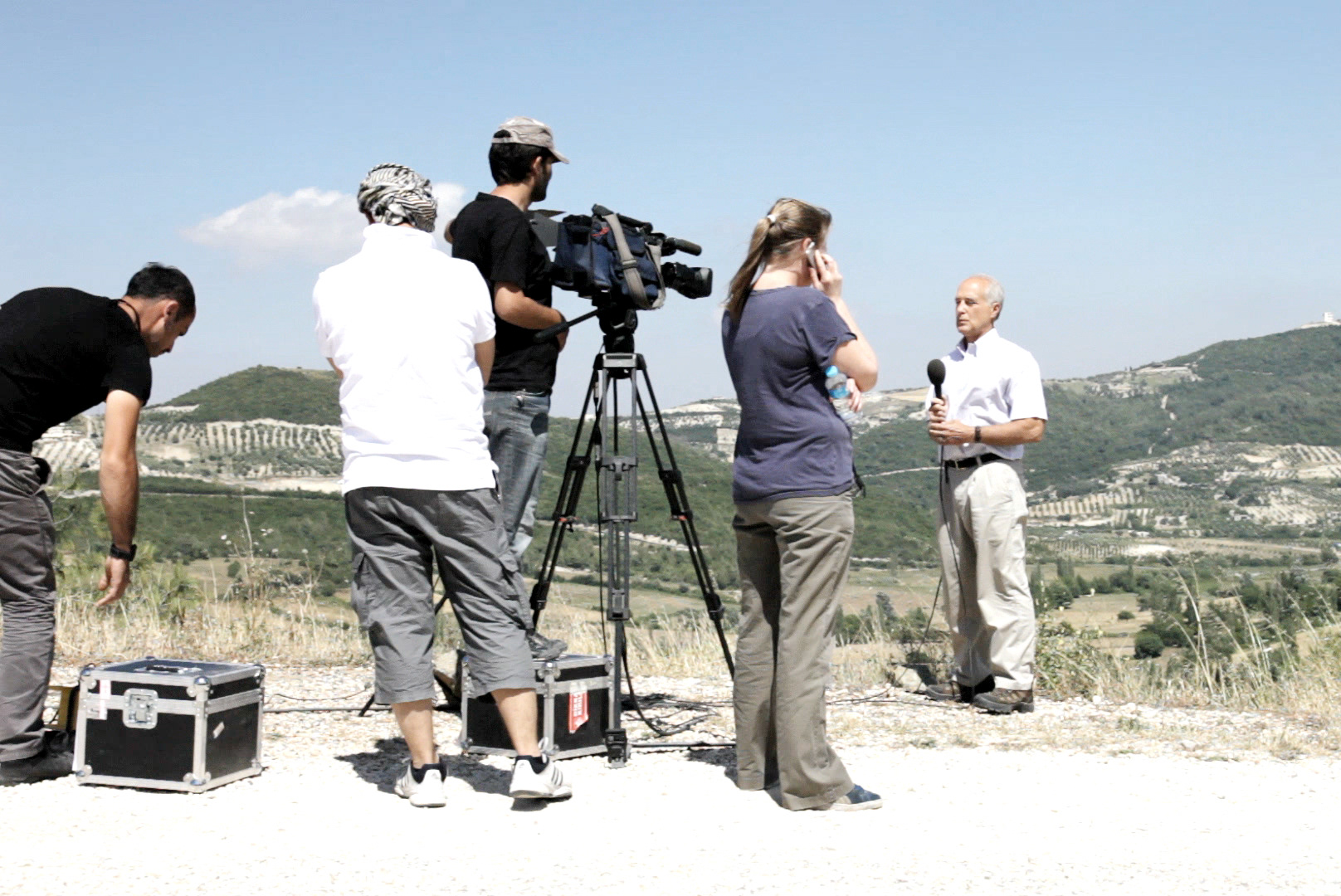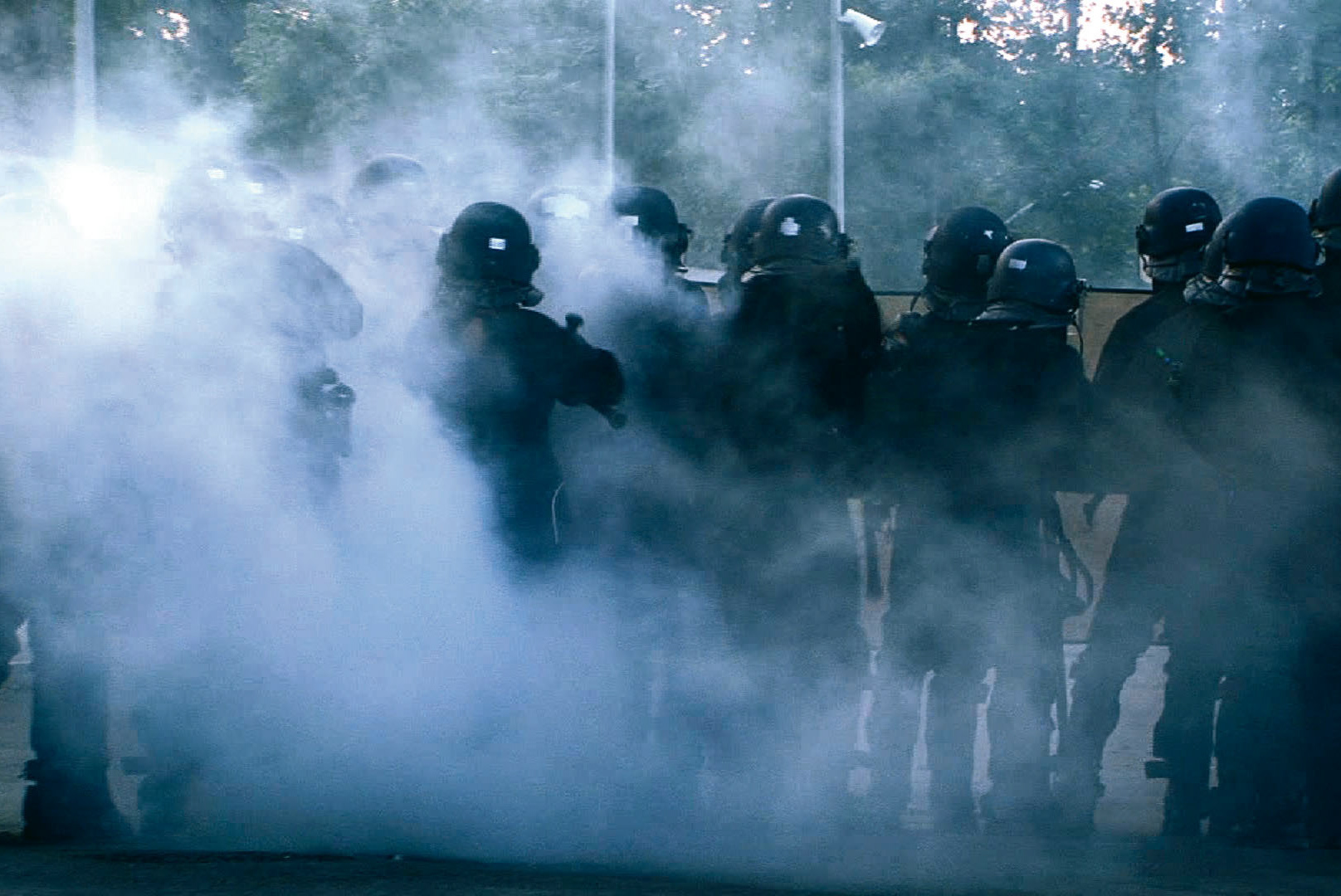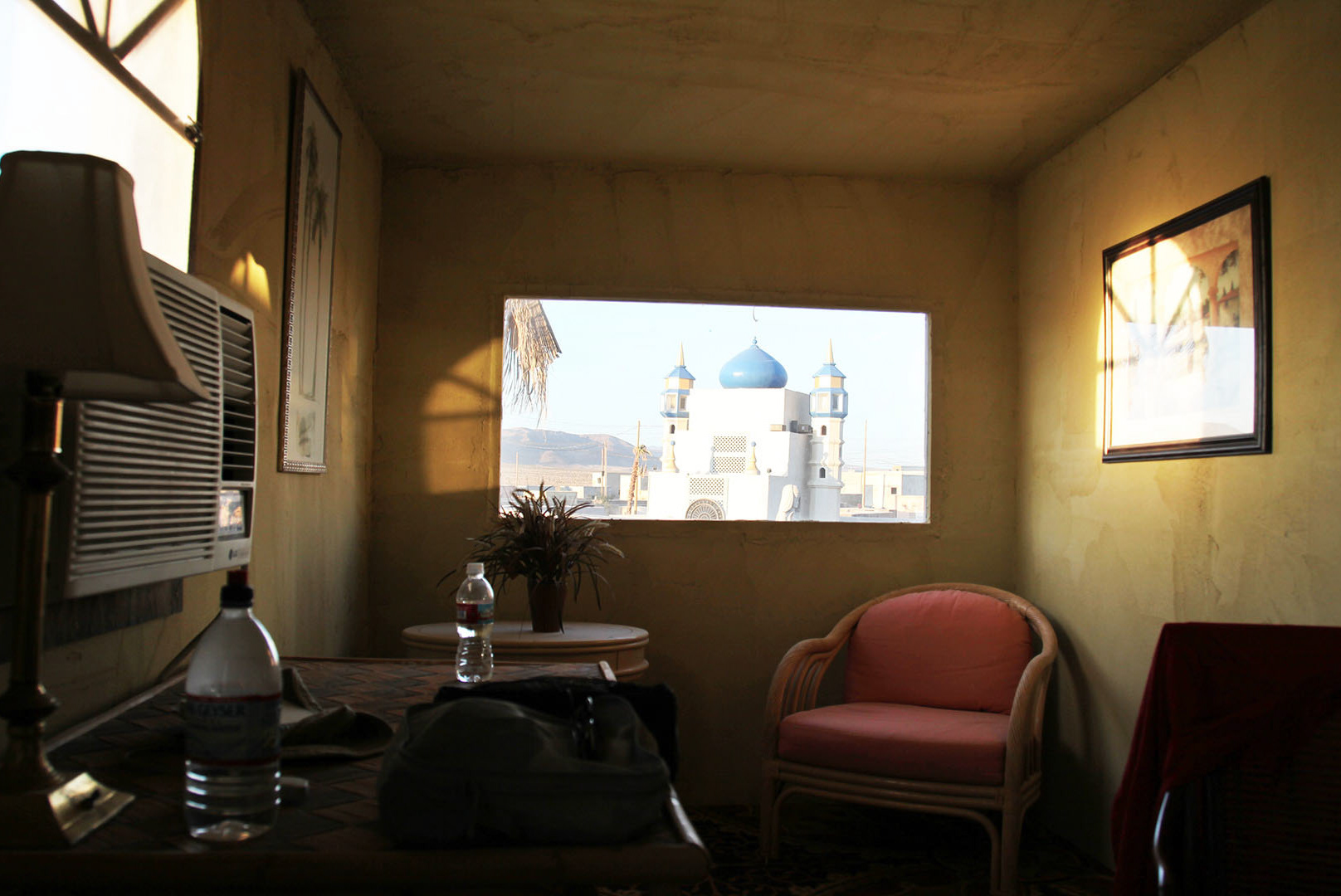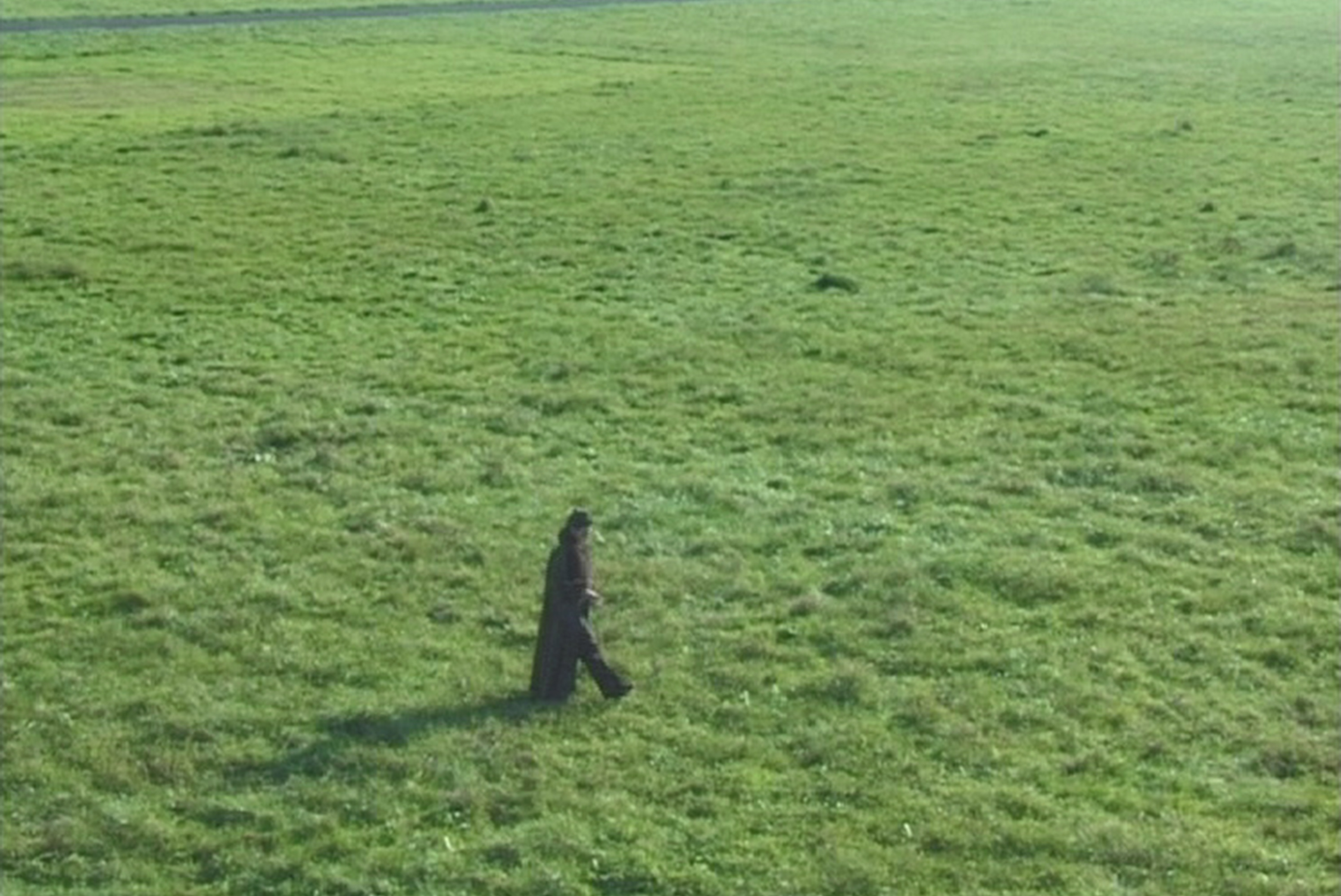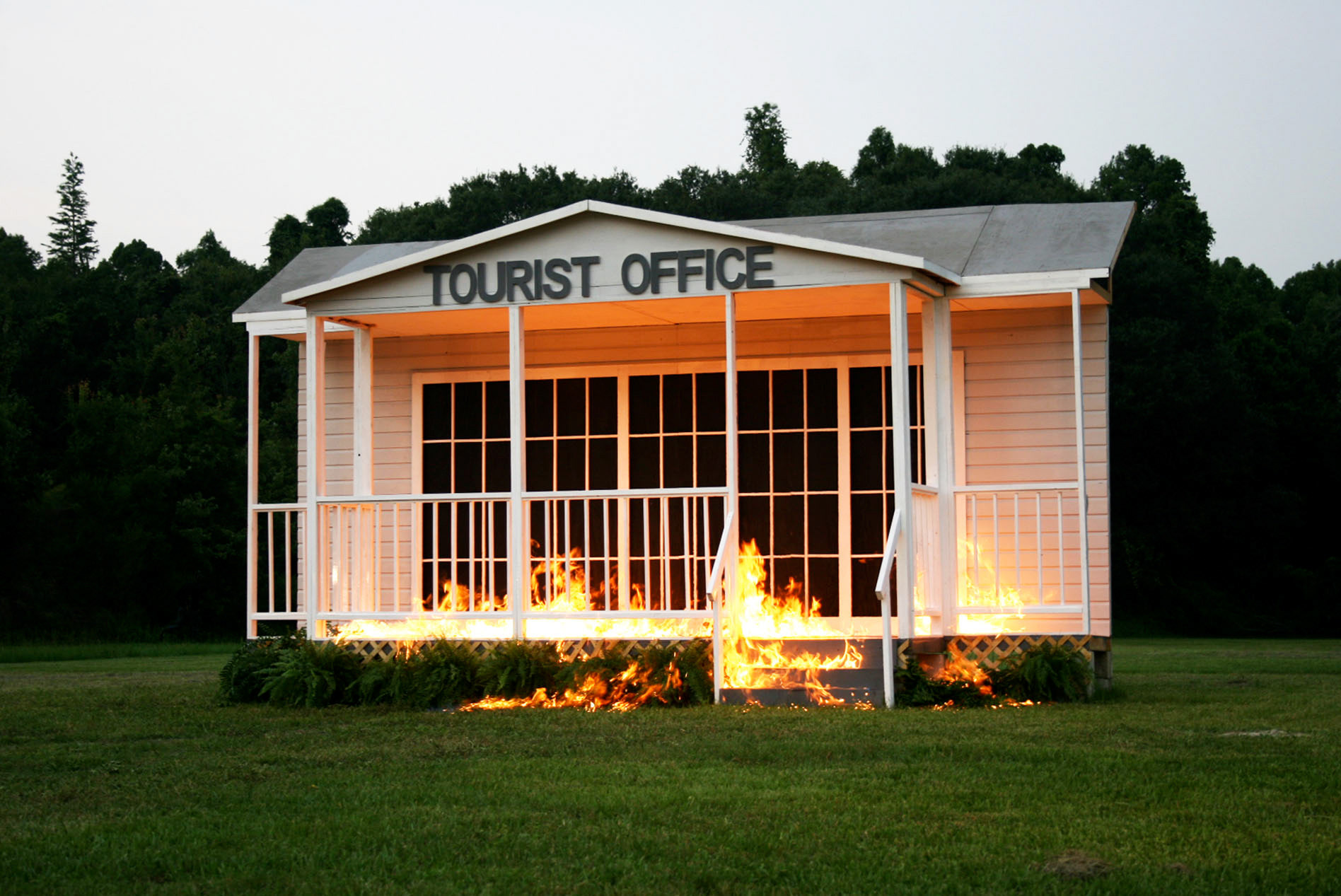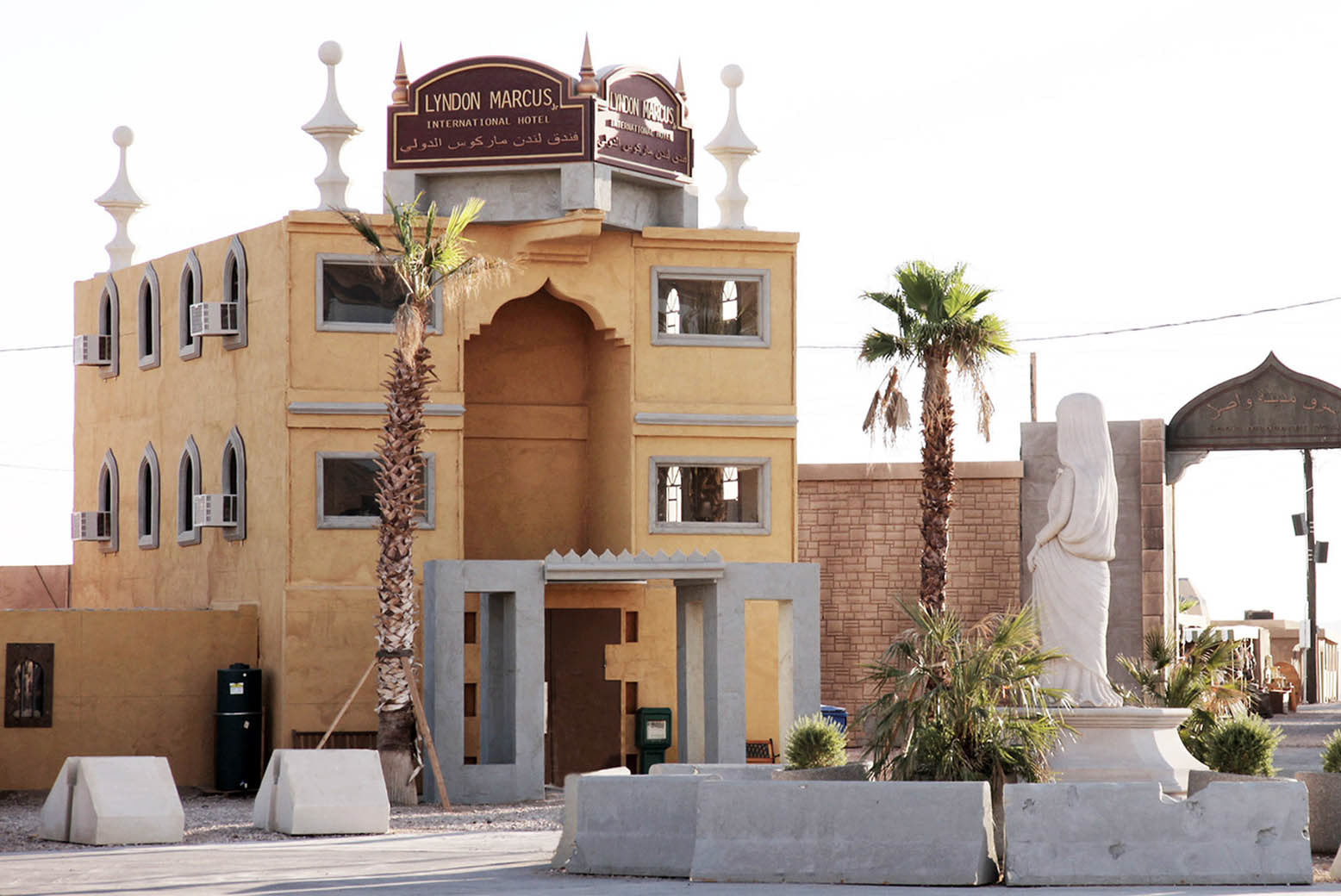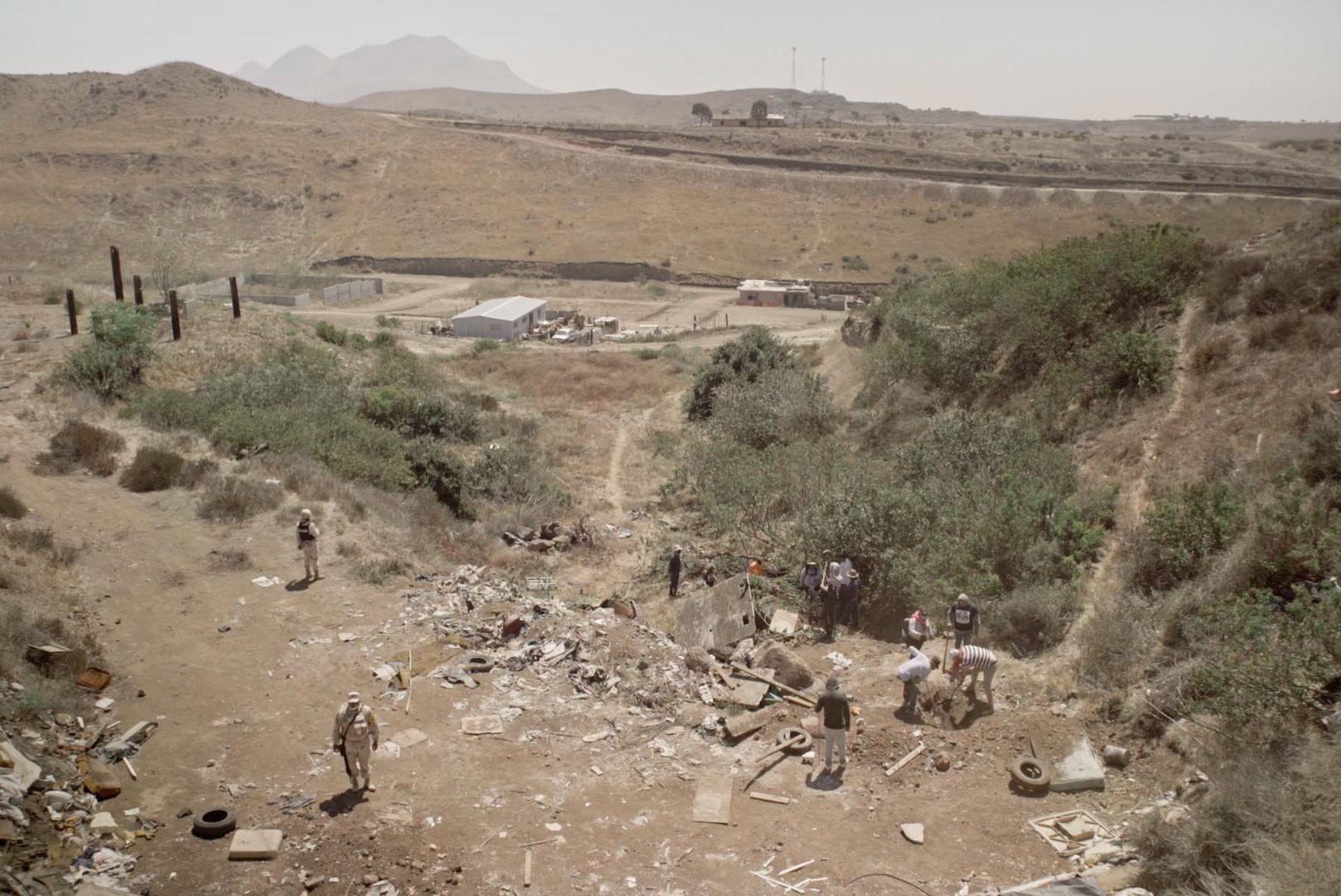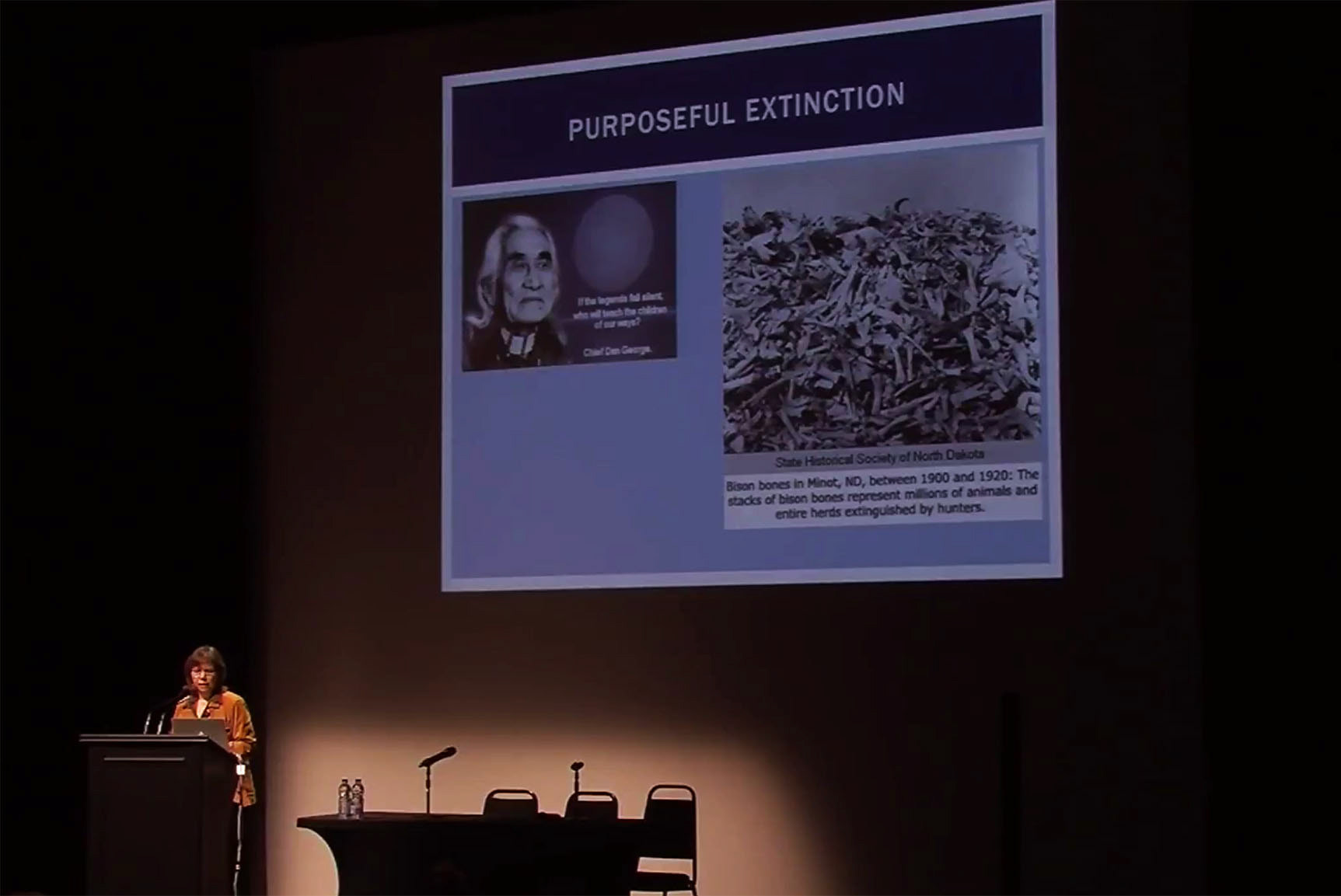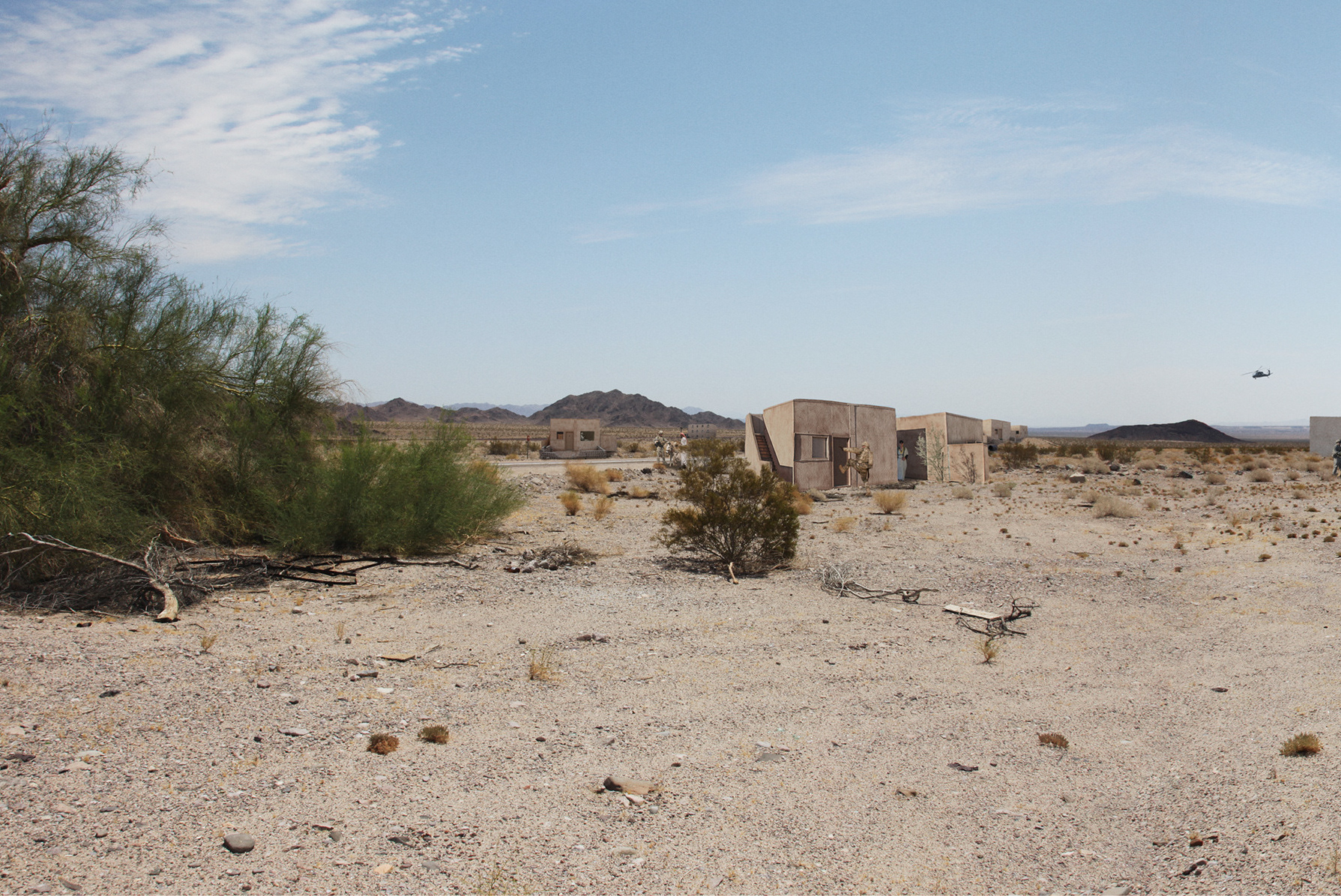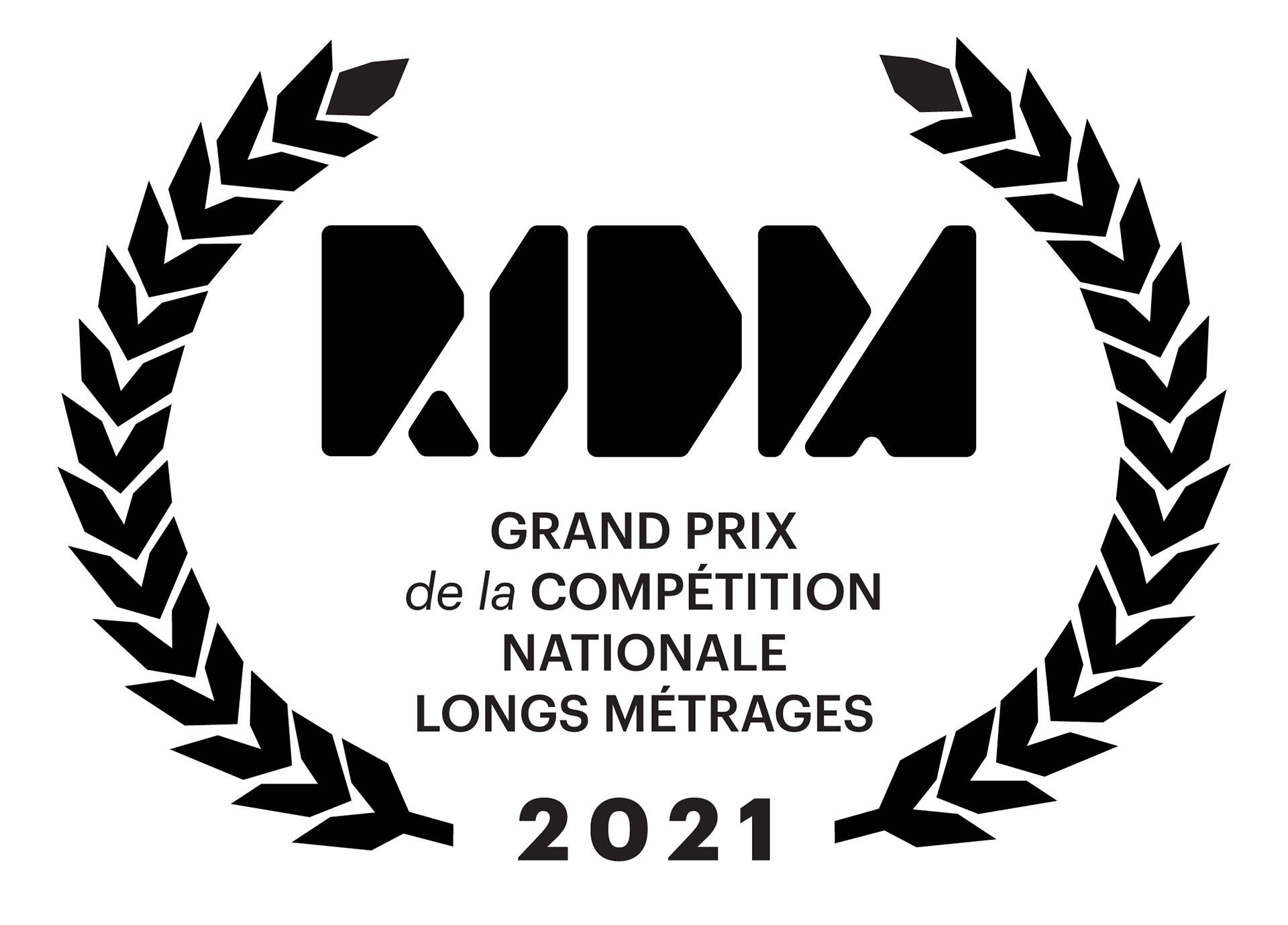
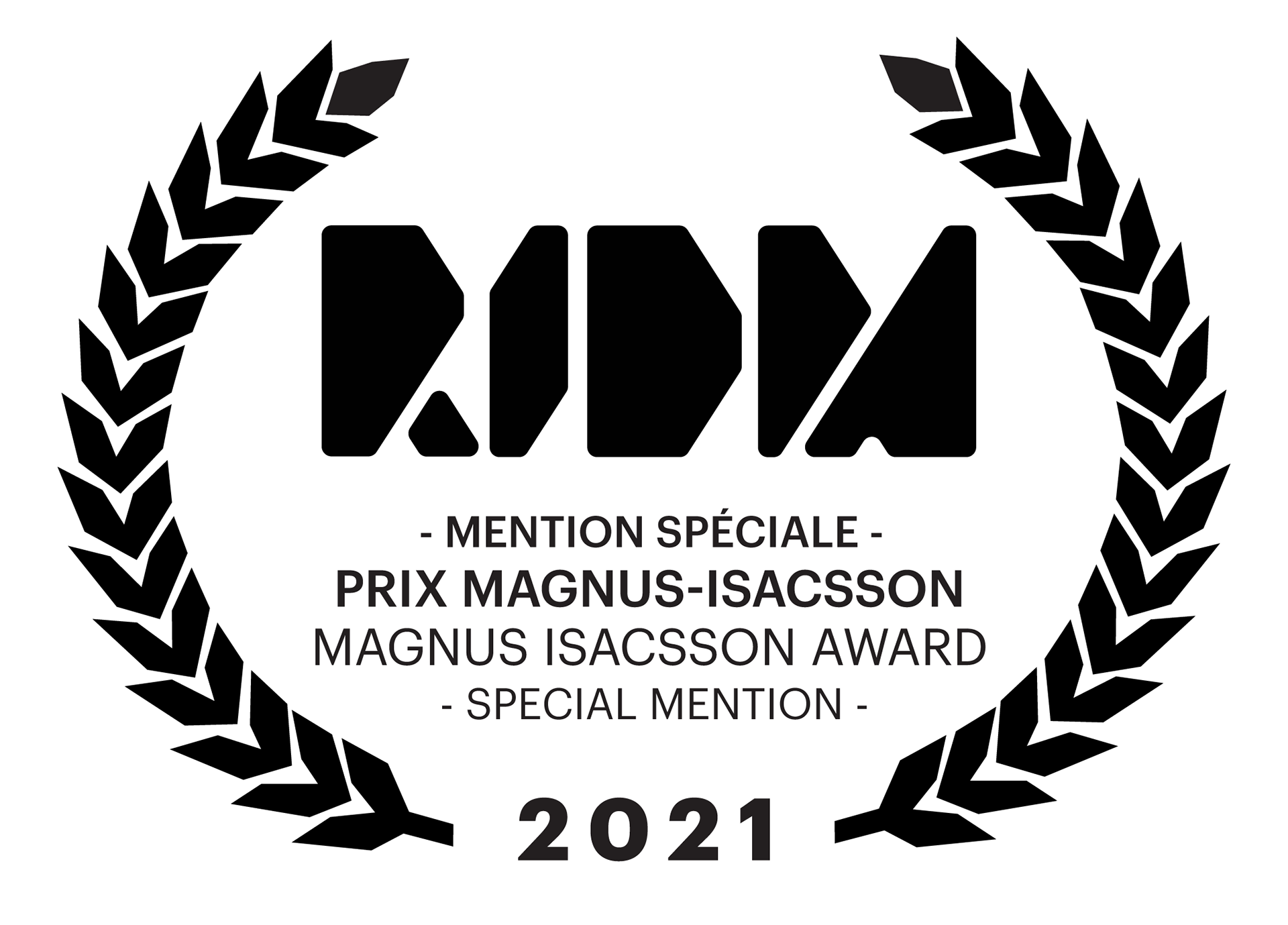
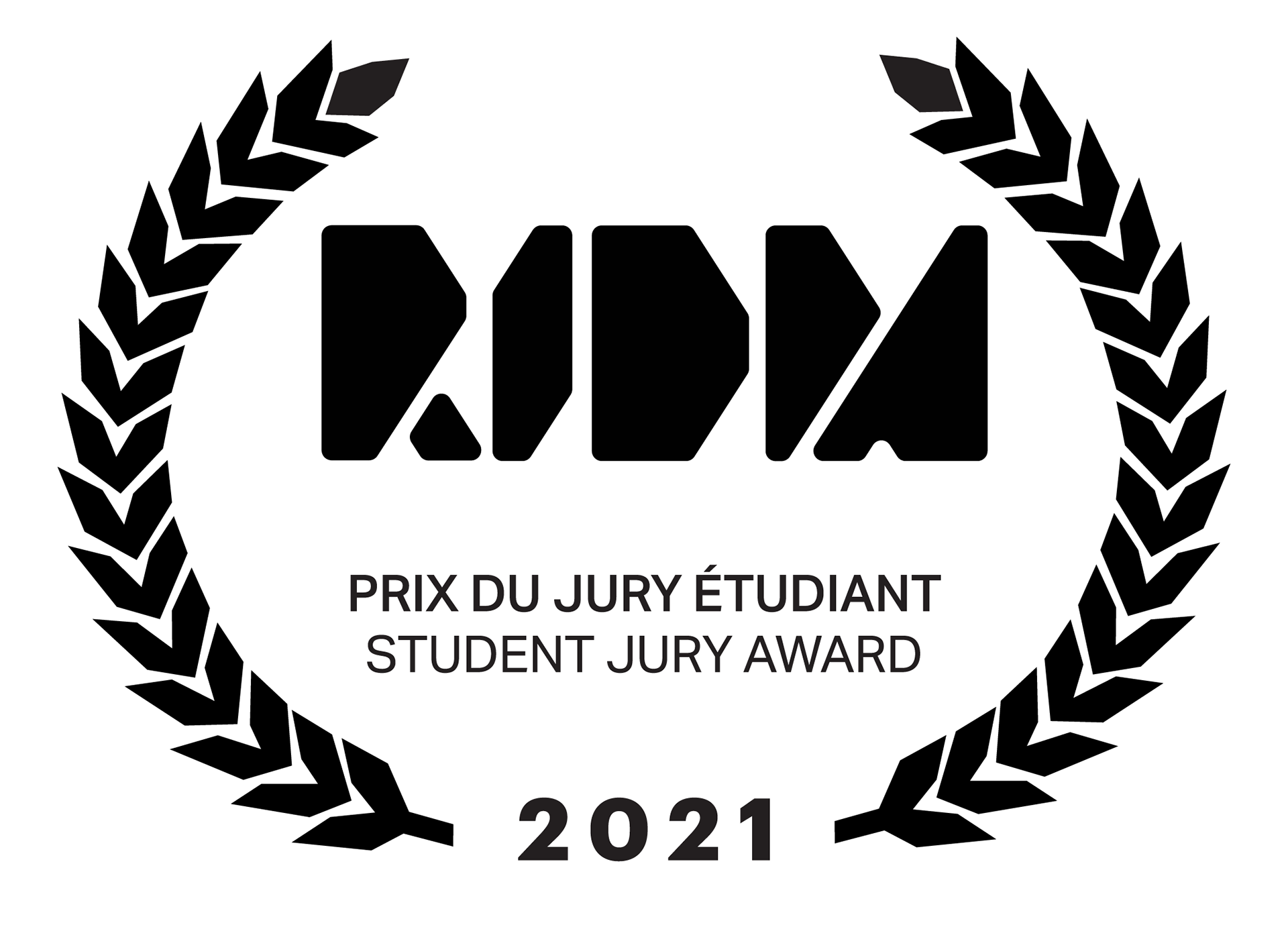

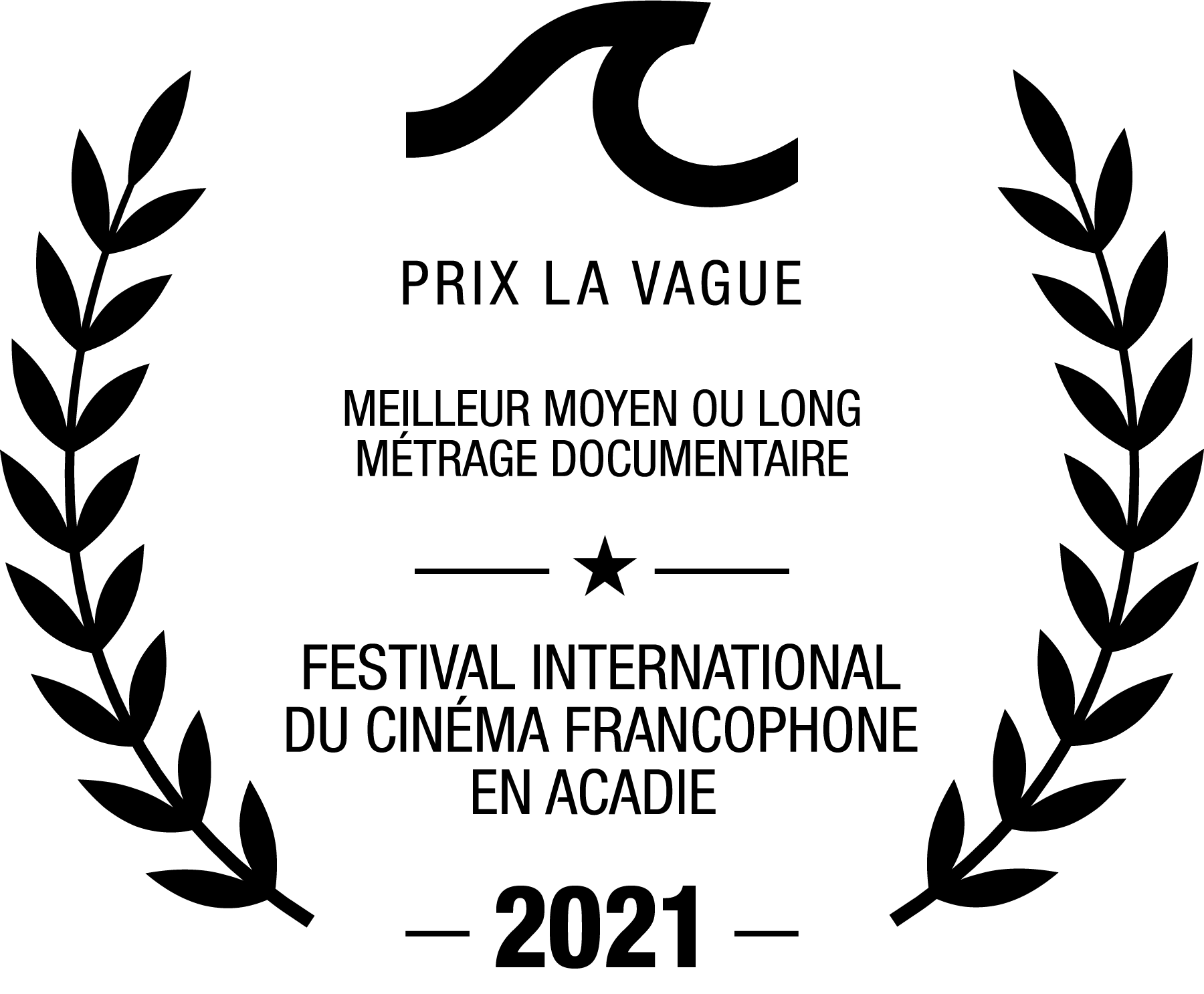
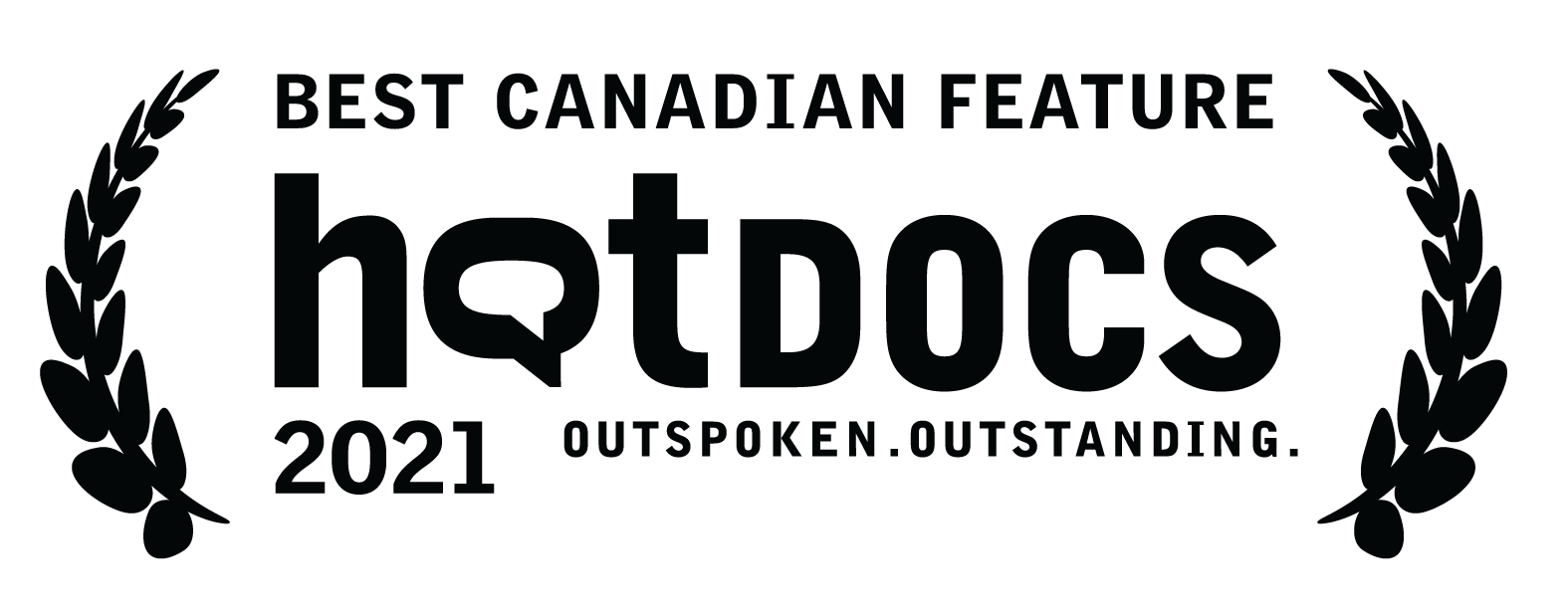
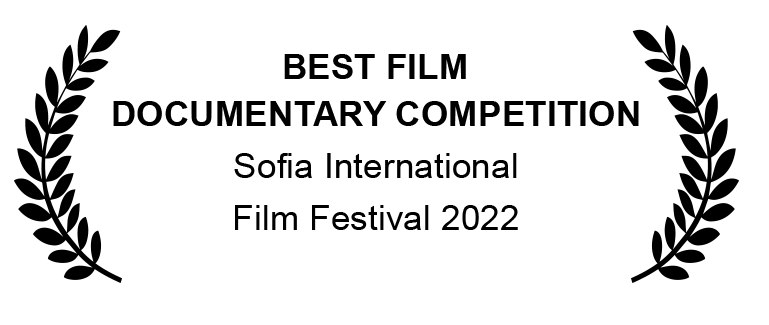
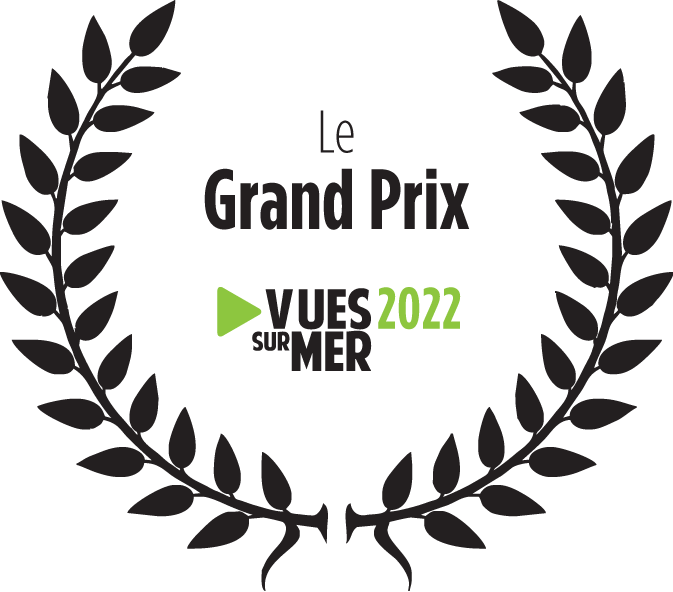
Creative documentary, 2021. 86 min.
Zo reken (“shark bone”) is the nickname given in Haiti to the Toyota Land Cruiser, a powerful 4x4 vehicle popular among the humanitarian aid organizations that are omnipresent in the country since the 2010 earthquake.
Ten years later, as the country is once more in turmoil and under a strict lockdown, a zo reken has been hacked and transformed into a mobile space for encounters and discussion among Haitians. Foreign aid workers are no longer allowed on board.
The driver leads the conversation with his passengers, all citizens of Port au Prince, as he tries to make his way between the barricades and the demonstrations. They talk about the state of the country, about neocolonialism and humanitarian aid, and anger is mounting. They’re angry at the president who lost the people’s confidence, frustrated by the international community that made promises that were never kept, and desperate to see the end of the violence against the most vulnerable.
zo reken is a road movie and a machine that makes them speak.
Credits
Written and directed by Emanuel Licha
Director of photography: Étienne Roussy
Sound recording and sound design: Catherine Van Der Donckt
With: Pascal Antoine
Director of photography: Étienne Roussy
Sound recording and sound design: Catherine Van Der Donckt
With: Pascal Antoine
Editing: Ariane Pétel-Despots
Music: David Drury
Sound mix: Benoît Dame
Color grading: Charles Boileau
Graphic design: Simon Guibord
Research and production assistance: Juliette Blondeau, Rodeney Cirius, Ariel St-Louis Lamoureux
Music: David Drury
Sound mix: Benoît Dame
Color grading: Charles Boileau
Graphic design: Simon Guibord
Research and production assistance: Juliette Blondeau, Rodeney Cirius, Ariel St-Louis Lamoureux
Production: Les Films de l'Autre
Distribution: Les Films du 3 mars
Distribution: Les Films du 3 mars
Documentaire de création, 2021. 86 min.
Zo reken (« os de requin ») est le surnom donné en Haïti au Toyota Land Cruiser, véhicule tout-terrain puissant, très prisé des organisations humanitaires internationales omniprésentes dans le pays depuis le séisme de 2010.
Dix ans plus tard, dans un pays en ébullition et plus bloqué que jamais, un zo reken a été hacké pour être transformé en espace mobile de rencontres et de discussion entre Haïtien.ne.s. Plus aucun.e travailleur.se humanitaire étranger.ère ne peut monter à bord.
Le chauffeur mène la conversation avec ses passager.ère.s, tou.te.s citoyen.ne.s de Port au Prince, pendant qu'il tente de se frayer un chemin entre les barricades et les manifestations. On parle de l’état du pays, de néocolonialisme et d’aide humanitaire, et la colère monte : contre le président en place qui a perdu la confiance de la population, contre les promesses d’aide non tenues de la communauté internationale, et contre la violence que subissent les plus vulnérables.
zo reken est un road movie et une machine à faire parler.
Crédits
Écriture et réalisation: Emanuel Licha
Direction de la photographie: Étienne Roussy
Prise de son et conception sonore: Catherine Van Der Donckt
Avec: Pascal Antoine
Prise de son et conception sonore: Catherine Van Der Donckt
Avec: Pascal Antoine
Montage: Ariane Pétel-Despots
Musique originale: David Drury
Mixage: Benoît Dame
Colorisation: Charles Boileau
Recherche et assistance à la production: Juliette Blondeau, Rodeney Cirius, Ariel St-Louis Lamoureux
Musique originale: David Drury
Mixage: Benoît Dame
Colorisation: Charles Boileau
Recherche et assistance à la production: Juliette Blondeau, Rodeney Cirius, Ariel St-Louis Lamoureux
Production: Les Films de l'Autre
Distribution: Les Films du 3 mars
Distribution: Les Films du 3 mars
Screenings | Projections
Hot Docs Canadian International Documentary Festival (Premiere)
FIN Atlantic International Film Festival
Calgary International Film festival
Vancouver International Film Festival
Africa in Motion
RIDM
Festival international de cinéma francophone en Acadie
Solidarity - Tel Aviv Human Rights Film Festival
Watch Docs
Festival du film et forum international sur les droits humains
Available Light Film Festival
Cinéma du Musée
Cinéma moderne
Cinémathèque québécoise
Cinéma public
Halifax Central Library
Fokal Haïti
Sofia International Film Festival
One World International Human Rights Documentary Film Festival
FIN Atlantic International Film Festival
Calgary International Film festival
Vancouver International Film Festival
Africa in Motion
RIDM
Festival international de cinéma francophone en Acadie
Solidarity - Tel Aviv Human Rights Film Festival
Watch Docs
Festival du film et forum international sur les droits humains
Available Light Film Festival
Cinéma du Musée
Cinéma moderne
Cinémathèque québécoise
Cinéma public
Halifax Central Library
Fokal Haïti
Sofia International Film Festival
One World International Human Rights Documentary Film Festival
Vues sur Mer - Festival du cinéma documentaire de Gaspé
Festival cinéma du monde de Sherbrooke
Cine Latino (Bergen, NO)
Canadian Association for the Study of International Development
International Film Festival Innsbruck
Doc Cévennes
Cinéma sous les étoiles
Galerie UQO
Le Grand Bivouac
Bienal de la imagen en movimiento
Festival International du Film documentaire Amazonie-Caraïbes
Rencontres cinéma UdeS Monde
Tënk
Ibizacinefest
Rendez-vous Québec cinéma
HUMAN International Documentary Film Festival
Centre des arts de la Maison d'Haïti
Théâtre Outremont, Montréal
Festival internatioal du film black de Montréal
Théâtre Outremont
Festival cinéma du monde de Sherbrooke
Cine Latino (Bergen, NO)
Canadian Association for the Study of International Development
International Film Festival Innsbruck
Doc Cévennes
Cinéma sous les étoiles
Galerie UQO
Le Grand Bivouac
Bienal de la imagen en movimiento
Festival International du Film documentaire Amazonie-Caraïbes
Rencontres cinéma UdeS Monde
Tënk
Ibizacinefest
Rendez-vous Québec cinéma
HUMAN International Documentary Film Festival
Centre des arts de la Maison d'Haïti
Théâtre Outremont, Montréal
Festival internatioal du film black de Montréal
Théâtre Outremont
Trailer | Bande-annonce
Director's note
An important part of what I envisioned for zo reken has to do with an episode that I experienced almost thirty years ago. I was back then a graduate student in geography and I was participating in a research project in a West African country. On the day of my arrival, I embarked with the team leader, white as I am, for a tour of the city onboard his 4x4 vehicle. It was the end of the rainy season and the dirt roads were gullied. The robustness of the vehicle allowed us to travel at high speed on the corrugated roads, narrowly avoiding pedestrians and cyclists. I was discovering the world of “international cooperation” from the air-conditioned cabin of an all-terrain vehicle.
4x4s are objects and spaces which mark the distinctions between the privileged and the afflicted, between caregivers and those assisted, between the “powerful” and the “weak”. The closed cabin of the car is the protected and mobile space of those who come and go, who are there without having to be or needing to stay. Thirty years ago, my repugnance at these objects and spaces, which I could use because I was a White in a country of Blacks, was no stranger to the fact that I ultimately did not make a career in this environment.
The type of 4x4 vehicles in which I was driven also exists in Haiti: it’s the Toyota Land Cruiser, nicknamed “zo reken” by Haitians - which means “shark bones” - because it is so sturdy. This is the reason why it is widely used by humanitarian aid organizations, which in turn popularized it for other uses: the repressive henchmen of the current president, Jovenel Moïse, who is despised by the people, shamelessly use it to terrorize the population. As the writer Lyonel Trouillot is heard saying in the film, “this vehicle means either NGO or repression. It means power, in any case.” Aid and repression are united in the zo reken, which has become the main character and antihero of the film.
The filming process was guided by the idea of “hacking” the zo reken by diverting it from its initial function, so that it no longer serves to transport humanitarian workers but rather to elicit the voices of those who are more used to see it pass than to travel in it. What was said and heard in it is a scathing criticism of the neocolonialist enterprise which continues to plague the country. That this criticism be framed from within the most emblematic object of this enterprise was an attempt to decolonize the zo reken.
I say “an attempt” because I know that the project carries with it its own contradictions: it is the film of a white man, shot with white men’s means, aboard a white men’s vehicle, in the country of black people. But this is a film aimed - not only but above all - at Whites, as it calls out to them as passers-by did to us in the streets of Port-au-Prince: “Whites! Let’s not play anymore!”. We can hear them clearly in the film.
We can also clearly hear other characters talking to us about the “fatal assistance” and the “stubborn patriarchy” inflicted relentlessly on Haiti. The country is one of the poorest in the world, but we continue to sell it our goods, our “expertise” and our arrogance, including through some lucrative humanitarian aid channels. I am not talking here of the indispensable solidarity that is deployed in urgent cases of disasters or conflicts. I am rather talking about the colonial dikes which have still not given way completely, even if they show signs of vulnerability here and there and sometimes some real subsidence. Inexorably, the lands are getting flooded. May the zo reken get stuck in the mud.
Note du réalisateur
J’ai en partie imaginé zo reken comme une réponse à un épisode que j’ai vécu il y a près de trente ans alors qu’étudiant en géographie, je participais à un projet de recherche dans un pays d’Afrique de l’Ouest. Le jour de mon arrivée, le responsable de l’équipe, un Blanc comme moi, me fit visiter la ville à bord de son véhicule 4x4 de fonction. C’était la fin de la saison des pluies et les routes en terre étaient ravinées. La robustesse du véhicule nous permettait de rouler à grande vitesse sur les routes ondulées comme de la tôle, frôlant de près piétons et cyclistes. Je découvrais le milieu de la « coopération internationale » depuis la cabine climatisée d’un véhicule tout terrain.
Les 4x4 sont des objets et des espaces qui marquent les distinctions entre privilégié.e.s et affligé.e.s, entre aidant.e.s et assisté.e.s, entre « puissant.e.s » et « faibles ». L’espace clos de la voiture est l’espace protégé et mobile de celui.celle qui va et qui vient, qui est là sans devoir y être ni y rester. Il y a trente ans, le haut-le-cœur que j’ai eu face à ces objets et ces espaces, dont je profitais parce ce que j’étais un Blanc dans un pays de Noirs, n’est pas étranger au fait que je n’ai finalement pas fait carrière dans ce milieu.
Ce 4x4 dans lequel on m’avait promené existe aussi en Haïti : c’est le Toyota Land Cruiser, que les Haïtien.ne.s surnomment « zo reken » - qui signifie « os de requin » - tant il est réputé solide. C’est pour cette raison qu’il est si prisé des travailleur.se.s humanitaires, qui à leur tour l’ont popularisé dans le pays pour servir d’autres usages : les sbires répressifs de l’actuel président Jovenel Moïse, honni de la population, l’utilisent ainsi sans vergogne pour terroriser la population. Comme le dit l’écrivain Lyonel Trouillot dans le film, « cette voiture, ça veut dire ONG ou répression, pouvoir de toutes façons ». L’aide et la répression se trouvent réunies dans le zo reken, devenu personnage principal et antihéros du film.
Le dispositif qui a guidé le tournage a consisté à « hacker » le zo reken en le détournant de sa fonction initiale pour qu’il ne serve plus à transporter des travailleur.se.s humanitaires mais plutôt à susciter la parole de ceux et celles qui ont davantage l’habitude de le voir passer que d’y voyager. Ce qui y a été dit et entendu est une critique cinglante de l’entreprise néocolonialiste qui continue d’affliger le pays. Que cette critique s’énonce à partir même de l’objet le plus emblématique de cette entreprise constituait une tentative de décoloniser le zo reken.
J’écris « tentative » car je sais que le projet porte en lui ses contradictions : c’est le film d’un Blanc, tourné avec des moyens de Blancs, à bord d’un véhicule de Blancs, dans un pays de Noirs. Mais c’est un film qui s’adresse – pas seulement mais surtout - aux Blancs. Il les invective comme des passants l’ont fait à notre encontre dans les rues de Port-au-Prince : « Blancs! Ne jouons plus! ». On les entend clairement dans le film.
On entend aussi clairement d’autres personnages nous parler de « l’assistanat funeste » et du « patriarcat intransigeant » infligés sans répit à Haïti. Le pays est l’un des plus pauvres du monde mais nous continuons d’y écouler nos marchandises, nos « expertises » et notre arrogance, entre autres par certains canaux lucratifs de l’aide humanitaire. Je ne parle pas ici de l’indispensable solidarité qui se déploie dans les cas urgents de catastrophes ou de conflits. Je parle des digues coloniales qui n’ont toujours pas cédé complètement, même si elles montrent ici et là des signes de vulnérabilité et parfois quelques véritables affaissements. Le paysage, inexorablement, s’inonde. Que le zo reken s’y embourbe.
Articles
The Guardian, August 2023
....................................
....................................
Liberté, été 2022
....................................
....................................
24 images, mars 2022
....................................
....................................
Mediafilm, mars 2022
....................................
....................................
Le Petit septième, décembre 2021
....................................
....................................
Ciel variable, Fall 2021
....................................
....................................
Spirale, mai 2021
....................................
....................................
Point of View Magazine, May 2021
....................................
....................................
Variety, May 2021
....................................
"As the zo reken in Licha’s innovative essay film manoeuvers around the barricades and the chaotic streets of Port-au-Prince, its Haitian passengers speak candidly about the current state of their country and the repercussions of “chronic” humanitarian aid."....................................
Point of View Magazine, April 2021
....................................
....................................
La Source, avril 2021
....................................
....................................
"Le festival VIFF présente zo reken", audio, Émission 'Panorama', radio de Radio-Canada, 4.10.2021
....................................
....................................
"Hot Docs: le documentaire zo reken d'Emanuel Licha", audio, Émission 'À échelle humaine', radio de Radio-Canada, 1.05.2021
....................................
....................................
"zo reken, un documentaire d'Emanuel Licha en Haïti", audio, Émission 'Première heure', radio de Radio Canada, 29.04.2021
....................................
....................................
"zo reken présenté à Hot Docs", audio, Émission 'Dans la mosaïque', radio de Radio-Canada, 29.04.2021
....................................
....................................
Pour approfondir | Further readings
Nicolas Bancel, « Le colonialisme : un projet humanitaire ? », Rencontre-débat du Centre de réflexion sur l’action et les savoirs humanitaires, Fondation Médecins sans frontières, 2005
Teju Cole, “The White-Savior Industrial Complex”, The Atlantic, March 21, 2012
Janaka Jayawickrama, "Humanitarian aid system is a continuation of the colonial project”, Al-Jazeera, Feb. 24, 2018
Emanuel Licha, "Topographies of Mass Violence: the Deviant Trajectories of Humanitarian Aid", Spirale, special issue #2, 2018
Catherine Porter, Constant Méheut, Matt Apuzzo and Selam Gebrekidan, "The Root of Haiti's Misery: Reparations to Enslavers", The New York Times, May 20, 2022
Olivia U. Rutazibwa, “IR Should Abandon the Notion of Aid, and Address Racism and Reparations”, Foreign Policy, July 3, 2020
Maïka Sondarjee, « La Solidarité internationale est-elle raciste? », Le Devoir, 6 mars 2021
Maïka Sondarjee, Perdre le sud: décoloniser la solidarité internationale, Montréal, écosociété, 2020
“Time to Decolonise Aid: Insights and lessons from a global consultation”, Peace Direct report, 2020
"Faut-il en finir avec la coopération ?", débat organisé par le Festival du film et forum international sur les droits humains, Genève, 6 mars 2022.
Avec Uzodinma Iweala, Ragnimwendé Eldaa Koama, Olivia Umurerwa Rutazibwa, Gilles Carbonnier, Dominique Tchimbakala
Avec Uzodinma Iweala, Ragnimwendé Eldaa Koama, Olivia Umurerwa Rutazibwa, Gilles Carbonnier, Dominique Tchimbakala
